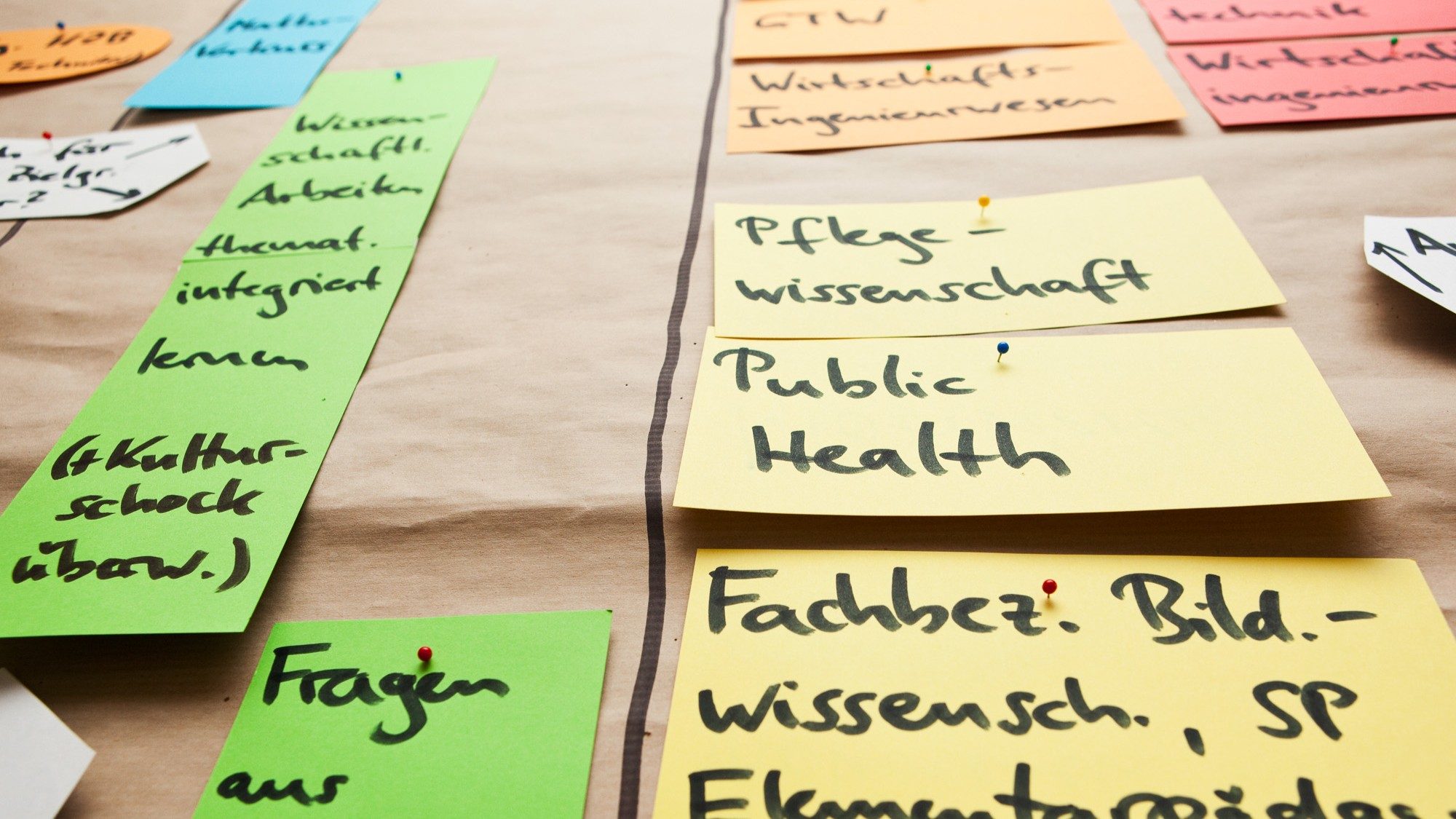
© Universität Bremen
Microdegrees and Macro Effects
The nuts@ub project aims to fundamentally transform teaching at the University of Bremen by introducing more flexible degree programs, microdegrees, and more freedoms for teaching staff
When current or former students are asked what led them to their choice of degree program, they often mention one aspect – a sense of purpose. It drives the prospective teacher who wants to model sustainable behavior for children, just as much as it drives the marine biologist who is investigating the effects of climate change on the ocean. Ideally, the knowledge gained during a degree fosters interdisciplinary thinking and the development of solutions for societal challenges. This is the goal of the project nuts@UB. Sustainable and Transdisciplinary Studies at the University of Bremen.
The project will receive funding from the Stiftung für Innovation in der Hochschule for at least four years beginning in October 2025, with the University of Bremen obtaining 4.6 million euros for its implementation. What exactly will the money be used for? “We want to make degree programs more flexible, standardize and increase the number of microdegree options, and create better conditions for our teaching staff,” says Professor Maren Peterson, Vice President for Teaching and Studies at the University of Bremen.
Electrical Engineering or Physics? Flexible University Introductory Phase to Consider Options
Before beginning a degree, a difficult decision must be made. Do I want to study physics, or would I rather pursue a degree in electrical engineering, German, or cultural studies? “Subjects taught in school such as biology, physics, or history usually are more obvious at first,” says Stefanie Grote. She is the director of the Administrative Unit Teaching and Studies in the Administrative Department for Academic Affairs and wrote the proposal with her team. “But focusing on just these subjects might prevent prospective students from considering others that might suit them just as well, or even better, such as cultural studies or electrical engineering.”
Prospective students often expect that studying a degree subject will involve evaluating the topic from as many different angles as possible. This explains the success of interdisciplinary degree programs such as Natural Sciences for Sustainability, which evaluates sustainability from many different scientific perspectives.
The project leaders want to strengthen both orientation and interdisciplinarity at the university. For example, by creating a flexible university introductory phase. This would mean that students select a general field of studies, for example humanities or natural sciences, and then have time to try out different subjects within this field to see which one best suits them.
The project team also aims to support academic staff in creating or revamping degree programs. They are going to examine whom the degree programs are intended to appeal to, what competencies students should develop during a given course of study, and how the individual modules and degree regulations are structured. “All of these are discussed during curriculum workshops, the central component of nuts@ub,” says Maren Petersen. The goal is to establish degree programs that consist of socially relevant topics which appeal to students both because of their content and methods.
Developing an Individual Profile with the Help of Microcredentials
Choosing a suitable degree program sets the stage for much of what follows, since many courses, seminars, and tutorials are mandatory. “However, students can still choose what focus to take and create their own personal profile,” says Stefanie Grote. Part of this project includes formalizing this with microdegrees. The underlying idea is that students take part in several modules on a given topic that can include elective, required, and general studies courses. These might consist of sequential language courses or several courses related to the topic of sustainability. Completing a set of courses like these can be recognized with microcredentials for specializing in this topic.
The project will include creating guidelines to determine who can award such microcredentials and the scope of courses they represent. “It should be evident to everyone – the university, students, and potential employers – what this credential represents. Only then will it have value,” says Maren Petersen.
Establishing Freedoms for Teaching
Developing new degree programs, revamping existing ones, designing microdegrees, and improving one’s teaching all require significant time investment. However, time is a rare commodity for many teaching staff members, since the German academic system often prioritizes research over teaching. This is why the project wants to give academics more time and freedoms in their teaching; for instance, by allowing them to temporarily reduce the number of lectures and seminars they teach. “That might sound counterintuitive, but it is necessary if they are to restructure a degree program. There just aren’t enough hours in the day,” says Stefanie Grote. Collaborations between researchers in different disciplines should be incentivized as well. “Overall, we want to make the teaching and dedication of our researchers more visible and empower them,” Maren Petersen summarizes. “Without teaching, the university would cease to exist. Our teaching staff provides an important contribution to society, which we want to give more recognition.”